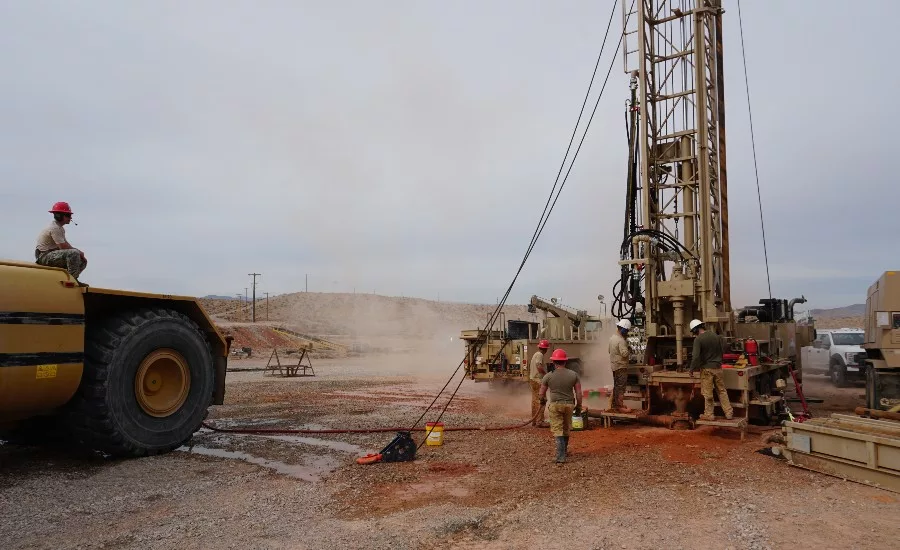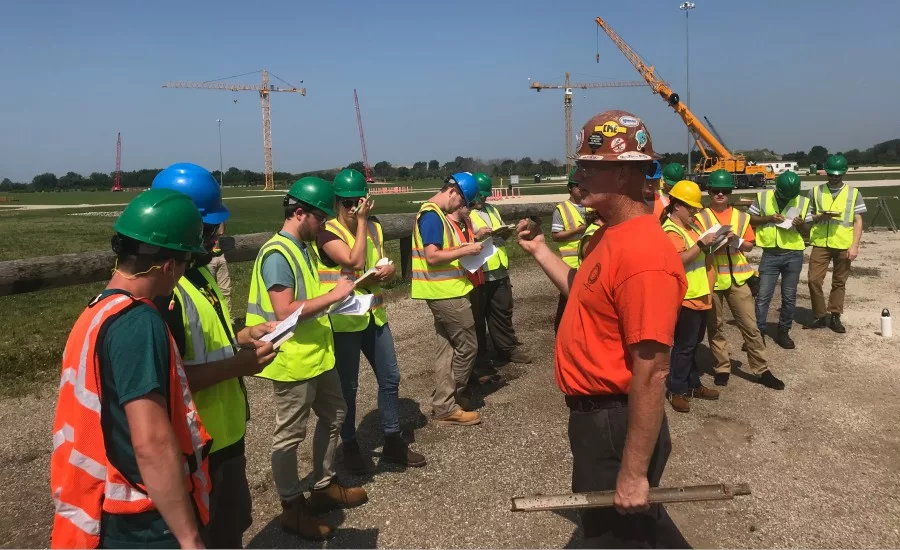How to be the Leader Drilling Crews, Others Follow
It All Comes Down to Vision, Empathy, Accountability

Driller Chris Colson leads a tool fishing crew on a project in the Bahamas.
Source: Brock Yordy photos


Drilling trainer Dave Bowers speaks at a training event. Part of being an attractive company to work for is getting employees the training they need to tackle projects that interest them.
Source: Brock Yordy photos

Of course, the drilling jobsite isn’t always conducive to small talk. But getting to know a little bit about the people you work with can help you understand that motivates them.
Source: Brock Yordy photos
The drilling industry focuses primarily on discovering the unknown. That unknown could range from why a drilling formation changes to why a deep-set line shaft failed. But, if our livelihood is built on working with unknowns, why do we seem blindsided when an employee leaves our company? How often do we hear, “I have no idea why he left,” or “she worked a couple of months and then put in her notice without any signs”?
As an industry, we struggle to recruit, hire and inspire a new, younger workforce. Once hired, employees rarely leave because of the work; they leave the leadership. Ironically enough, the leadership’s vision is what the company becomes. Eventually, poor leaders with no vision allow good employees to leave.
“Vision”
Every great boss I worked for had one key characteristic in common: the ability to inspire a team with a good vision or cause. That vision attracts employees who want to work for that leader and company.
In his latest book, “The Infinite Game,” leadership guru Simon Sinek writes that we must have a “cause.” He elaborates that the cause must be “a forward-looking statement that is so inspiring and compelling that people are willing to sacrifice to see that vision advanced.” Good employees want to be part of something more than just compensation.
Many promising visions get lost in the goals required to operate a company. If your vision starts to get hard to define, your team will also have a hard time being inspired to advance it.
I have accepted opportunities to work on challenging projects because it excites me to produce resources from the ground. I have resigned from more than one company when the “cause” that recruited me got lost amid the idea that compensation is all people need to continue to work in toxic conditions. Many promising visions get lost in the goals required to operate a company. If your vision starts to get hard to define, your team will also have a hard time being inspired to advance it.
Sinek goes on to say, “Your vision must be resilient and capable of enduring other changes.” Understanding that good people need purpose is key to being a great leader.
Be the Company People Want to Work for
My first job beyond the farm and well business was working after school at a hardware store near my home in Decatur, Michigan. The general manager of the store, Mark Grigsby, was my first boss outside of the family business. Mark created a working environment that allowed a 16-year-old to trust his judgment and not be afraid to ask questions. When I screwed up, he would treat me fairly. Mark understood that his vision was simple: Create a work environment where everyone wanted to be at work. Working at the hardware store with Mark rarely felt like actual work. I enjoyed working there so much that all of my friends put in applications. I think back on his leadership style and apply what I learned from him. I often ask myself, “Is this the company that everyone wants to work for?”
I got Your Back!
I worked for the next boss who influenced my leadership style, Patrick Niemi, in college. He is the Technical Director (TD) of the Western Michigan University Theatre Program. I worked for Pat as a scene shop assistant, building sets for the college’s fall and spring plays. He replaced our former boss in the summer before my junior year of college.
Pat stepped into our scene shop as the new boss with a ton of set building and design experience from one of Chicago’s most prominent theaters. The first day we met Pat, he asked us what we were studying and why we worked in the scene shop. Every one of my colleagues was studying to become a TD, and then there was me. I was studying directing, environmental sciences, and water treatment utilizing barley and hops. Although I had worked in the shop for two years and had successfully built and torn down dozens of sets, Pat had a recommendation to replace me with a student on the technical design career path. Pat, however, had his one process in mind to evaluate each member of his team individually. He gave each one of us a clean slate to prove ourselves to him. Pat knew, stepping into his new boss role, had a vision of integrity, accountability and trust. Ultimately, we knew Pat had our back and, in turn, we had his back.
Digging Deeper Together
I know what you are thinking right now: What does the manager of a hardware store or a new technical director of a university theater program have to do leadership in the drilling industry? It is simple: Both Mark and Pat understood the importance of developing young people in an environment of trust and purpose. As leaders, we have to recognize what our teams require to be successful. A new hire in their early 20s may have few life experiences to pull from in order to overcome situations with lousy vision or no vision at all. We must dig deeper to know our team beyond the skills required to do the job. Leaders today require empathy to better known their teams.
Empathy — Discovering Where your Team Comes from
Understanding where an employee comes from and wants to go means the difference between supervision and leadership. “Empathy,” the ability to share the feelings of your coworkers, is critical to great leadership. When we go beyond the basics of a job that we have in common, we start to see what motivates our people. Motivation could range from a near-term goal to the solution for a current problem. It could be the opportunity to collaborate on a nontraditional project. The drilling industry’s rough-and-tough culture doesn’t have time for feelings, often preventing good supervisors from connecting with their teams. When we break that old-world culture, a leader can start to develop a team capable of overcoming any situation.
Accountability to Being a Leader
For many of us, leadership starts as a high-stakes opportunity. We stand on the rig platform, ensuring that we maintain a safe working environment while simultaneously drilling a stable borehole. When a borehole collapses or a teammate is injured, the individual on the platform is responsible. Those primary responsibilities often end up superseding our ability to become great leaders. But, even under the right circumstances, a great driller or operator does not always make a great leader. Bosses that motivated me the most held me accountable for not only the day or the job, but also for being the right leader for my team. We must hold ourselves accountable for maintaining our own vision, trust and empathy. When we hold ourselves accountable, our team will be with us every step of the way. They are with us because we do not want to let them down, and they do not want to let us down. With a team like that, you can overcome any bad situation or unstable borehole.
My favorite 2020 quote came from Troy Chipps, CEO of Eijkelkamp North America. He said, “Brock, you don’t know what you don’t know until you see it.” That statement hits hardest when you are blindsided by an employee leaving. A great leader will take the time to understand better what motivated the employee to leave the company, and reflect on how they can refine their vision to better inspire those employees who stayed. Great leaders striving to improve their people’s environment through a cause more significant than just a paycheck will always have a stack of applications waiting for them.
Looking for a reprint of this article?
From high-res PDFs to custom plaques, order your copy today!




